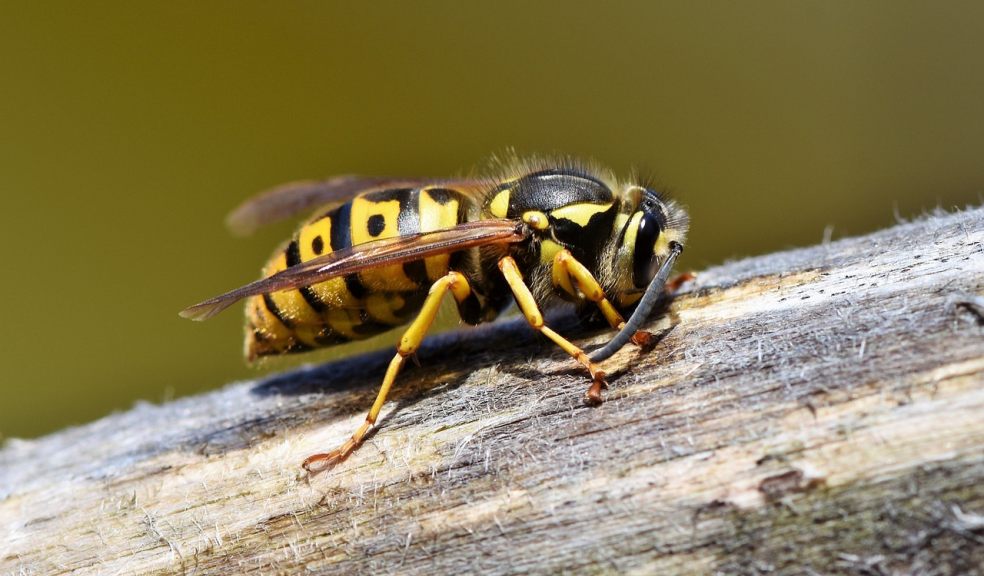
Are they bees or wasps?
Are you seeing more bees than usual and worried you have a problem? If you spot a nest, is it a beehive or is it a wasp’s nest?
Apart from the obvious differences that separate out a bumblebee from the other black and yellow stinging insects, bees and wasps look similar, and at a glance it can be hard to know whether it’s a wasp or a bee you’re dealing with.
The environmental job of bees is largely well known. Nature creates for a reason and so wasps play an important environmental role too.
Regardless if it's a wasp’s nest or a beehive, if you think you might have a wasp nest or a beehive in or around your house, always call a professional pest control company to remove it safely.
As well as the obvious risks of being stung from bees or wasps that feel threatened, even an abandoned nest or hive can lead to problems such as pests and mites that feed off the honey.
And right off the bat, blocking a hive or nest rarely has good outcomes.
If you need bee nest removal or think you have wasps, leave it to the professionals.
Bees have thicker hair than wasps
Wasps have a more distinct yellow colour than bees, which are wider than wasps and hairier too.
This hair plays an important role in their ability to pollinate. Pollen clings to a bee’s feather-like hairs, helping them transfer it from flower to flower.
Wasps have very little hair but what they do have can pick up pollen, making wasps accidental pollinators, so they still play a role in pollination.
They have different diets
Both bees and wasps love sugary foods, hence their attraction to our sweet-smelling food and drink. But at that picnic, unless you’re eating flowers, it’s more likely to be a wasp at your picnic, than a bee.
Adult wasps feed entirely on sugars while bees feed on pollen and nectar. Nectar is a bee’s carbohydrates and pollen is converted into energy. Young honeybees eat royal jelly, a secretion from the queen and nurse bees. Bees have also been known to eat very ripe fruit.
Some scientists are now arguing that bees eat microbes and it’s been known for some time that fermenting microbes are present in pollen.
Wasps, however, feed their young with insects like flies and spiders that they have captured.
A wasp nest or a beehive?
A wasp colony would typically be no larger than 10,000, whereas bees can have as many as 75,000.
Bees can use the same hive year after year whereas wasps will never return to the same nest after it’s abandoned.
The single sting myth
It is said that bees can only sting once then die. But this isn’t true.
Honeybees have barbs on their stinger that get stuck in thick-skinned creatures, like humans. As the honey bee flies off the sting is left behind along with the bee’s abdominal organs, which are attached to the stinger.
Other bees can sting multiple times, as can the honeybee when it’s stinging softer skinned creatures.
However, it’s worth noting that both wasps and bees only sting when they feel threatened. If you stay calm around them both, they won’t sting you.
Wasps are known for being a lot more aggressive than bees. Wasps are also natural predators, and bees are not, which is why they tend to be more aggressive.
Wasps sometimes attack a beehive to try and feed off the honey and protein from the bees. Bees can fight off a wasp attack if their hive is strong enough, but wasps usually target weak colonies.
In both bees and wasps it’s only the females who can sting, not the males.
Both have a queen
Both wasps and bees have a Queen in their social group. The Queen bee stays in the hive to lay eggs and is noticeably the largest bee in the group. Queen wasps hibernate in the winter and are the only wasps that can survive the cold season.
Final Thoughts
Bees and wasps can sometimes be hard to tell apart. But there are some distinct differences.
If you do find a nest, don’t try to get rid of a wasp nest or beehive yourself as you are putting yourself at serious risk of getting stung.
Getting professionals to take care of the nest is safer for you, and they will know how to treat the nests without causing harm to the insects.













